7. A Brighter Summer Day (Edward Yang, 1991)
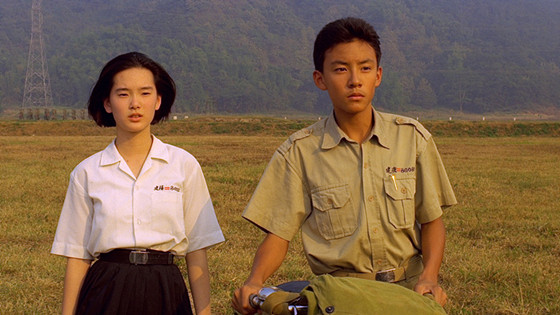
The film is based on a 1961 episode that Edward Yang remembers from his school days, when the 14-year-old son of a civil servant murdered his girlfriend, who was also a member of a teenager gang, in a highly publicized case that led to the first juvenile trial in Taiwan.
The film focuses on Xiao S’ir and his family, who emigrated from the mainland in order for the father to pursue a better career due to his political and social connections. However, the new policies of the government during the 60s leave the father without influence and the family in an awful social, cultural and financial situation, which eventually leads S’ir to join a teenager gang named Little Park Boys, who is in a constant territory war with a similar gang named 217.
Eventually S’ir meets, befriends, and falls for Ming, the ex-girlfriend of the leader of a rival gang named Honey, who has gone into hiding after supposedly killing a romantic rival. Despite warning from others for the girl, and his family’s deteriorating situation, S’ir is determined to save her.
As Hou Hsiao-Hsien in “A City of Sadness”, Yang wanted to present the circumstances of the transplanted Chinese as they struggle to rebuild their lives in a newly created nation, among social imbalance and an unforeseeable future that leads to a sense of alienation and disorientation, and he did so in an insightful and analytical fashion that resulted in a true masterpiece.
The similarities with Hou’s magnum opus are also similar in the technical department, including medium shots, slow pace, and scarce dialogue in a film that stretches almost for four hours.
Yang cast both Chang Kuo Chu in the father role and his actual son, Chang Chen, who plays S’ir in his debut, both of whom are wonderful in their respective parts. The latter went on to become one of the most renowned actors in the country, with roles in films by Ang Lee, Hou Hsiao-Hsien and Wong Kar Wai.
8. Rebels of the Neon God (Tsai Ming Liang, 1992)
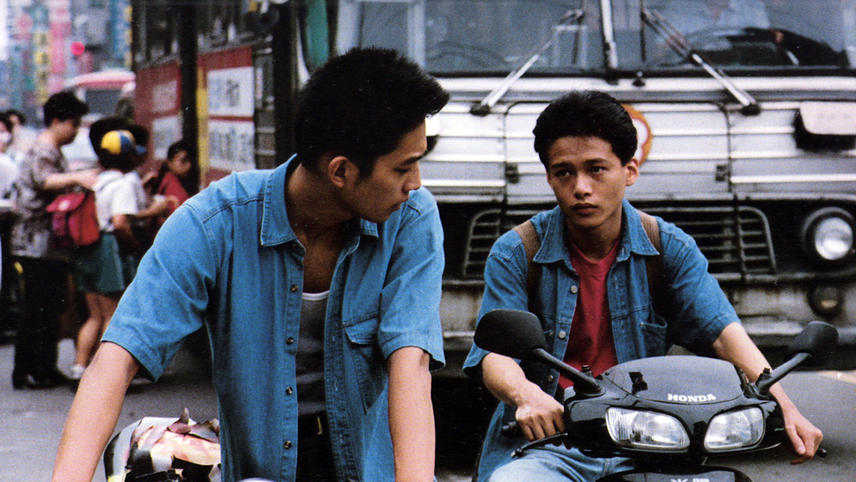
Hsiao Kang is the son of a taxi driver whose parents pressure him to pass his college entrance examination. One day, a gang of teenagers smashes his father’s taxi in front of him, a viewing that scars him deeply. Eventually he decides to drop his examination, takes a refund on his cram school tuition, and decides to roam through Taipei.
While he is walking in the city, he comes across Ah Tze, a member of the gang that smashed his father’s car, and his prostitute girlfriend named Ah Kwei, and he decides to take revenge. Subsequently, Ah Tze finds his motorcycle wrecked, his best friend Ah Bing beaten by the Triads, and even realizes that he is in love with the girl. On the other hand, Ah Kwei’s father kicks him out for quitting school.
Tsai Ming Liang set the tone for his next works in his debut, presenting the ugly side of Taipei in a cinematographically astonishing way that ends up creating a plethora of beautiful shots of the Neon God, who is actually the city itself.
Furthermore, he presents the toll that life in the metropolis takes on individuals, and the love postmodern Asians showed for technology, a tendency that eventually led to isolation.
Lastly, the scenes where Hsiao Kang “plays” with cockroaches and the one where Ah Tze has sex with Ah Kwei besides a TV that shows people having sex are magnificent as much as they are symbolic.
9. The Puppetmaster (Hou Hsiao-Hsien, 1993)
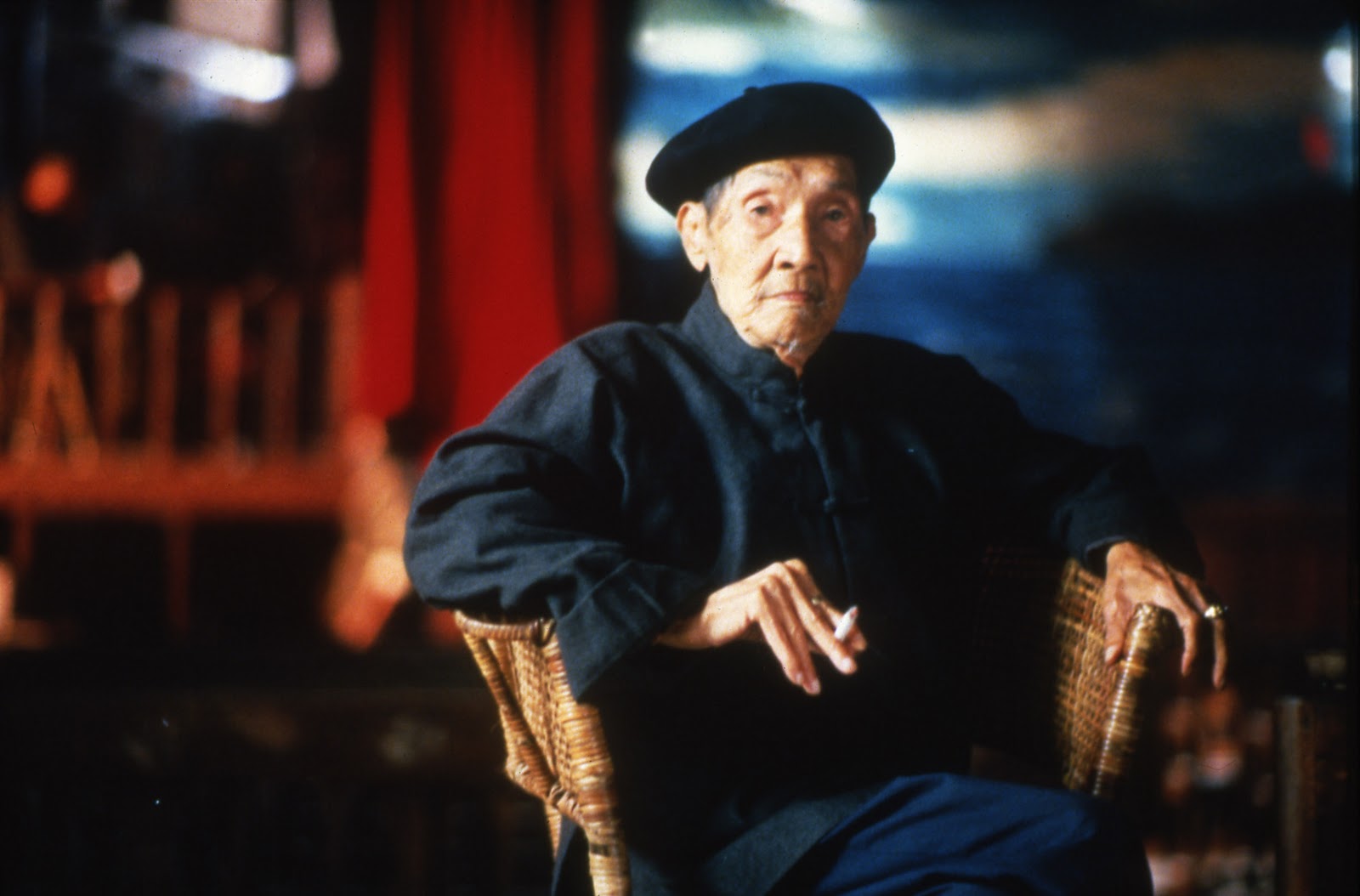
The film deals with the life of Li Tien-lu, Taiwan’s most famous puppeteer and one of the most renowned in the world. Hou’s fourth movie that included the elderly actor tells his story from his birth in 1909 up to 1945, when the Japanese occupation ended after 51 years.
The movie focuses on Li’s capabilities as a puppeteer but also shows his living conditions, which forced him to appear at times like one of his puppets. Since his childhood, Li was always under the authority of a higher power. Initially he was under his mother’s power, who forced him to steal and to call her “aunt” due to advice of an oracle. In his adolescence, he was under the power of his father, who forced him to give him all the money he earned.
Finally, in his 40s, he was under the power of the Japanese army, who forced him to propagandize in their favor. Additionally, his fate mirrors Taiwan’s, who was under occupation from the Dutch, the Chinese, the Japanese, and Chinese again, consequently.
Hou alternates scenes where the 84-year-old Li tells his life story directly to the camera, with ones he directed himself and ones where Li demonstrates his skills, presenting in that fashion, a documentary-like feature.
His abstract way of narration becomes apparent when Hou functions as narrator, because he is not just describing what occurs onscreen, but extends to details not shown. The film won the Jury Award at the Cannes Film Festival and awards at a number of others, mostly in European countries.
10. A Confucian Confusion (Edward Yang, 1994)
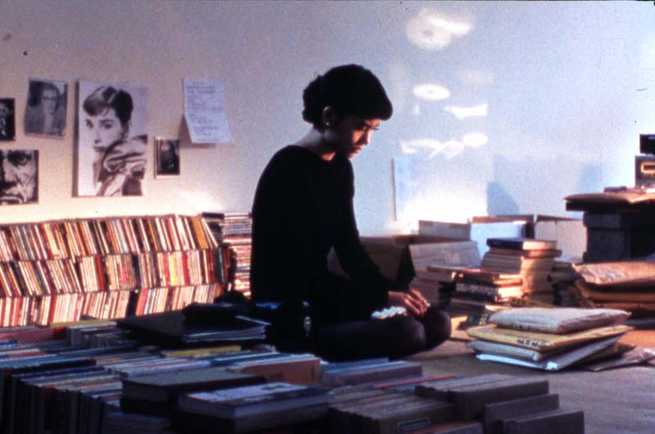
The film is set up in Taipei, this time in the 90s, where modern and “trendy” aspirations are on collision with traditional Chinese values, most of which come from the teachings of Confucius.
In this culturally hectic environment, the movie tells the story of about 20 characters, most of whom are yuppies, in a space of two and a half days. In the center of the story is Molly, a rich young woman who runs a deteriorating PR office, which is chiefly financed by her fiancé Akeem, with their relationship being overly childish and tortured by fits of jealousy from both sides.
Qiqi is her faithful assistant, and both her and her fiancé named Ming come from a working class background. Larry is the troublemaking assistant of Akeem and the one who actually runs the company, and Feng is an aspiring actress who lurks at the office waiting for her big break and flirting with Larry. These are just a few of the characters intermingling.
This time, Edward Yang directs a comedic parody based on the intense relationships between the characters, and a number of misunderstandings and disagreements. Eventually all of them are revealed to be connected with each other, through sex, friendship or kinship, and the fact that in their overwhelming majority are highly unlikable individuals.
Furthermore, the film is filled with hysteria and cynicism regarding human relations, with the characters presented as striking up social and romantic relationships solely to benefit from them.
Lastly, “A Confucian Confusion” differs from Yang’s previous films due to its fast pace and bright colors, although the outcome is as elaborate as usual.
11. The Hole (Tsai Ming Liang, 1998)
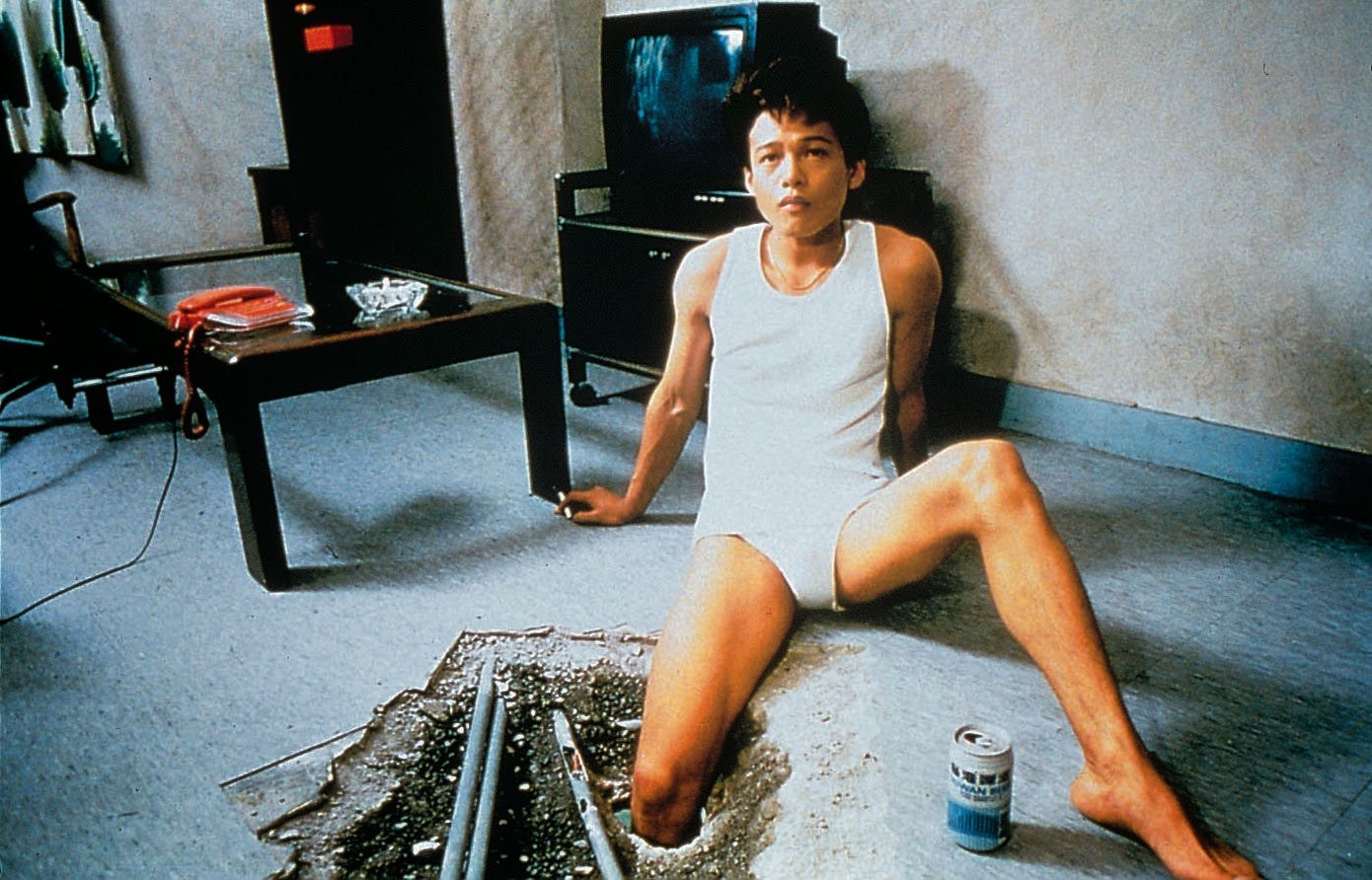
A little before 2000, a mysterious virus spreads rapidly and creates chaos in Taipei. The authorities order the evacuation of the city and warn that the supply of water will soon stop. The massive exodus leaves the city almost completely abandoned but some decide to stay.
In a block of flats, a woman has a problem with her house’s plumbing that seems to have its root in the flat on the floor directly above her. The plumber who tries to fix the problem leaves a wide hole in the ceiling. In an oppressive and dismal environment that tortures the souls of the last men standing, this hole eventually becomes the sole source of human communication.
Tsai Ming Liang directs a film that benefits the most from the production design that portrays a macabre and uninviting scenery, and the constant sound of heavy rain that at times is the only noise that breaks the silence of the nightmarish and claustrophobic atmosphere. The latter is largely assisted by Tsai’s trademark camerawork with the long, extended takes and the narrow framing. All of these elements play the most important role in establishing the film’s pervasive mood of despair, another trademark of his.
However, what sets this picture apart from the rest of his filmography is the song and dance sequences based on the music of Hong Kong diva Grace Chang, whose songs Liang used to enjoy in his adolescence.
“The Hole” is an ingenious inside its frugality film that focuses on the human need for communication, even in a place that is a death trap by itself.
12. Crouching Tiger, Hidden Dragon (Ang Lee, 2000)
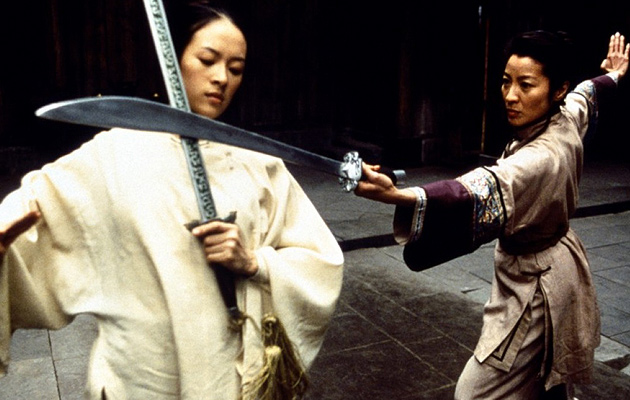
With 10 Oscar nominations that netted four golden statues, “Crouching Tiger, Hidden Dragon” is one of the most celebrated wuxia films of all time and Ang Lee’s magnum opus.
In 19th century China, master warrior Li Mu Bai, who is secretly in love with Yu Shu Lien, the former fiancé of his deceased best friend and currently his associate, searches for a stolen sword named “Green Dragon.” His suspicions fall on an aristocrat’s daughter named Jen Yu, who in her desire to avoid her destiny has secretly trained in martial arts with the woman who assassinated Li Mu Bai’s teacher.
Ang Lee managed to take a Wuxia novel mostly concerning martial arts and transform it into a delirious, audiovisual poem, where each character fights for a different reason: love, honor, and recognition. However, love is eventually proven to be the strongest driving force.
Apart from its sublime aesthetics and notions, the film is also a magnificent example of the skills of the world-renowned action choreographer Yuen Woo Ping, who, inspired by Chinese opera, has the protagonists fighting on rooftops and tree branches in magnificent gravity-ignoring sequences, which are included among the best ever to appear in the genre.
All three of the protagonists, Chow Yun Fat as Li Mu Bai, Michelle Yeoh as Yu Shu Lien and Zhang Ziyi as Jen Yu, are astonishing in their respective parts.
13. Yi Yi (Edward Yang, 2000)
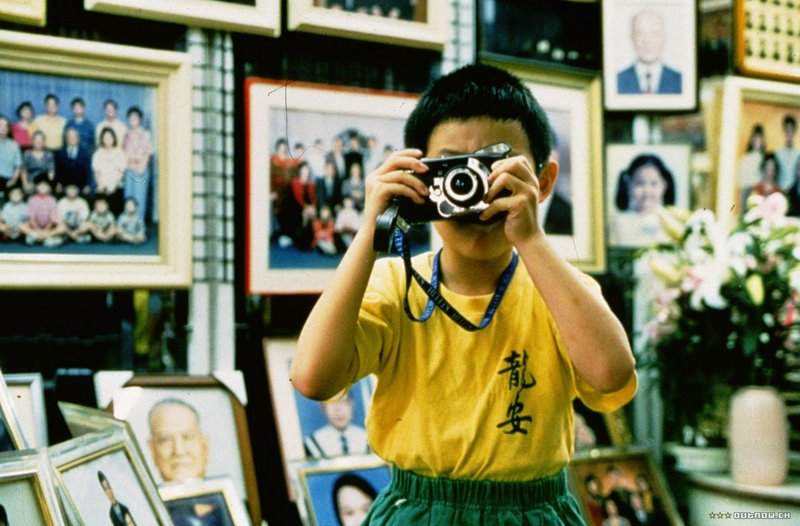
The script revolves around a big bourgeoisie family in Taipei. NJ, where the middle-aged father is in big trouble. During his brother-in-law A Di’s wedding, he meets Sherry, a woman he abandoned without a warning years ago. His mother is in a coma and his wife, during a severe psychological crisis, leaves their home and joins a monastery. His brother owes him a large sum of money and his partners seem to ignore him in their effort to reform the company.
His kids seem to have trouble of their own. His daughter Ting Ting strikes a romantic relationship with her best friend’s ex-boyfriend, a situation that creates a number of issues. His son Yang Yang has some troubles in school with his teacher and some female classmates, while being very philosophical about life.
Edward Yang wrote and directed a magnificent film that manages to present a number of philosophical and social issues through the lives of his characters, achieving at the same time a high level of realism and even managing to create a highly entertaining spectacle, particularly due to the humor spread throughout its duration.
Nien-Jen Wu is sublime in the role of NJ, although the one who steals the show is child actor Yang Yang.